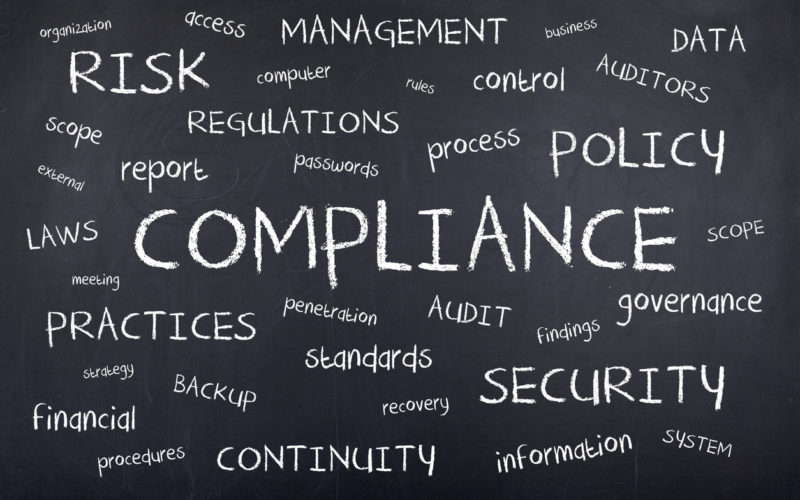The cost of avoiding invoice compliance: A fragmented landscape

Billions of transactions occur every day in the B2B buying world. The potential for error during buying and supplying, paying and getting paid is almost endless, costing businesses millions of dollars each year.
At the same time, tax rules for B2B invoicing are unique and shifting rapidly across the globe. Governments are getting directly involved in invoice-to-pay (I2P) financial supply chains. It costs time, money and impacts productivity if you don’t get invoice compliance right. In this article, we’ll explore the cost of avoiding invoice compliance.
What do we mean by ‘Invoice to Pay’ process non-compliance?
Put simply; compliance refers to whether or not your processes abide by the financial rules dictated by centralised authorities. To be ‘legally’ compliant, companies must act in accordance with local and national legislation or stipulated requirements.
Requirements could involve how invoices are processed, transmitted or stored. One of the most significant areas of concern for businesses is ‘tax’ compliance, as invoices relate to revenue and can quickly land finance departments in hot water if they are found to be in breach of government rules.
It’s a complex business. Getting it right is hard. Mandates are not harmonised across governments or regions, either from a technical standpoint nor a legal one. So international organisations are increasingly concerned with streamlining their processes to protect their business from the cost of non-compliance.
The consequences of not getting it right can be severe. As a result, organisations outsource the responsibility to a third party with intimate knowledge of the invoice to pay process across borders, companies that can get it right on their behalf every time.
The issue with invoice compliance
Ruud van Hilten is an expert on e-invoicing and country compliance at Tungsten Network. In a recent interview, van Hilten shared his thoughts on understanding the current invoice compliance landscape, the consequences of non-compliance and what international companies must do to avoid severe penalties.
“We have to first understand compliance,” he said. “That means not just appreciating the legal obligations of processing an e-invoice, but the tax implications and requirements too. Unfortunately for international companies, requirements are different all over the world.
“Any invoice is a living legal document, subject to audits at a moment’s notice. Buyers rely on invoice accuracy to settle with suppliers and reclaim local VAT. Invoice tax should be taken very seriously because failure to produce accurate documents creates substantial risk. Invoice audit failure leads to monetary penalties or even criminal charges in the most serious cases.
“Whether called VAT, GST, or a sales tax, it must be correctly reflected in the invoice. Every country demands it. The problem is that each tax regime differs; what a government requires will vary depending on the geographic region. Even in the European [Single Market Area], jurisdictions don’t agree on what constitutes a compliant invoice.
“Companies have to consider whether invoices satisfy local tax offices, especially if they are domestic invoices; that is, relating to a buyer based within their own country. International invoices must satisfy the requirements of multiple countries’ tax offices. There are so many variables it’s a struggle for companies to keep up.”
A problematic landscape for invoice compliance
Whether intentionally made or not, human errors pose a significant threat to businesses and governments alike with invoicing.
“It’s no secret that tax evasion and avoidance happen,” said van Hilten. “They create significant tax deficiencies for countries. Governments want to close the ‘VAT Gap.’ Shortfalls leave a country with less money to invest in education, infrastructure and healthcare. Tax evasion and avoidance equate to losses of over €165 billion in the EU alone. In recent years, governments have invested more in technology to get a better grip on tax payable.
“To that end, governments have placed themselves inside the financial supply chain via invoicing. In many countries, plans have been launched to force suppliers to register invoices before going to buyers. It’s no longer the case that we can simply send an invoice and expect to get audited a few years later. In essence, you are audited before you complete the transaction.
“By deploying technology, governments can force the invoice compliance of buyers and suppliers. From a tax-due perspective, it’s a very logical thing to do. But from a business point of view, it can seem very intrusive. Companies have to plan for this: maybe the IT department isn’t ready to integrate with that technology, or you didn’t budget for it. Even so, invoice compliance isn’t optional.”
Non-compliance is not an option
In some countries, suppliers are rendered unable to invoice a buyer. The reason? The government rejects the invoice outright.
“Firms that have offshored their AP processes to lower-wage countries often find themselves forced to move it back. But mandates are not set out for the benefit of driving efficiencies for companies. So it’s fair to say that what’s good for the government isn’t always good for business.
“On the other hand, with invoicing compliance, governments can stimulate greater digitisation, which is a positive outcome. Critically though, to enjoy the benefits, businesses must partner wisely and not make the mistake of trying to implement international mandates in-house.”
The hidden consequences of government invoice mandates
When a government imposes a successful mandate, it’s reasonable to assume that it won’t be the last. A domino effect is currently underway, as governments worldwide race to improve tax receipts in the wake of the nascent Covid-19 economic recovery.
“Governments always look for continuous improvements. What other areas of taxation can they pull in? Invoice compliance is the start. But often, governments will require additional information for invoices. For example, ‘Tax Deducted/Collected at Source,’ a requirement in India, is designed to designate income tax and has been added as an obligation for compliant invoicing. Suddenly, your business could be in a position where systems have to source new outputs, and you must adapt your processes to fit or face penalties,” he said.
But that isn’t all. Reporting is also essential to comply with government legislation. Revenues, accounts, everything must be available online. The digital availability component is also starting to affect invoicing, with so-called “hybrid mandate models.” In fact, there’s a convergence of systems in some countries: reporting can take precedence in some jurisdictions, with e-involving more of a priority in others. Either way, the balance of both will be essential in a short space of time.
“The point is,” he continued, “you have to stay on the ball with different obligations, and make sure your back-end systems are ready to comply. There’s a lot of ambiguity around taxation. Unlike developing a new product, or implementing a new system, the changes come from the outside, and are beyond our control.”
The ease of external invoice compliance
Invoice compliance is too complex for international organisations to execute effectively on their own. Finance leaders are much better off partnering with invoicing experts to guarantee their compliance across jurisdictions despite shifting international priorities.
Streamline your invoice to pay process with Tungsten Network
Tungsten Network uses innovative technology to automate invoice and payment processing, allowing your organisation to remain compliant across borders and boundaries.
Read more on the cost of invoice to pay non-compliance with the next blog in our series.



